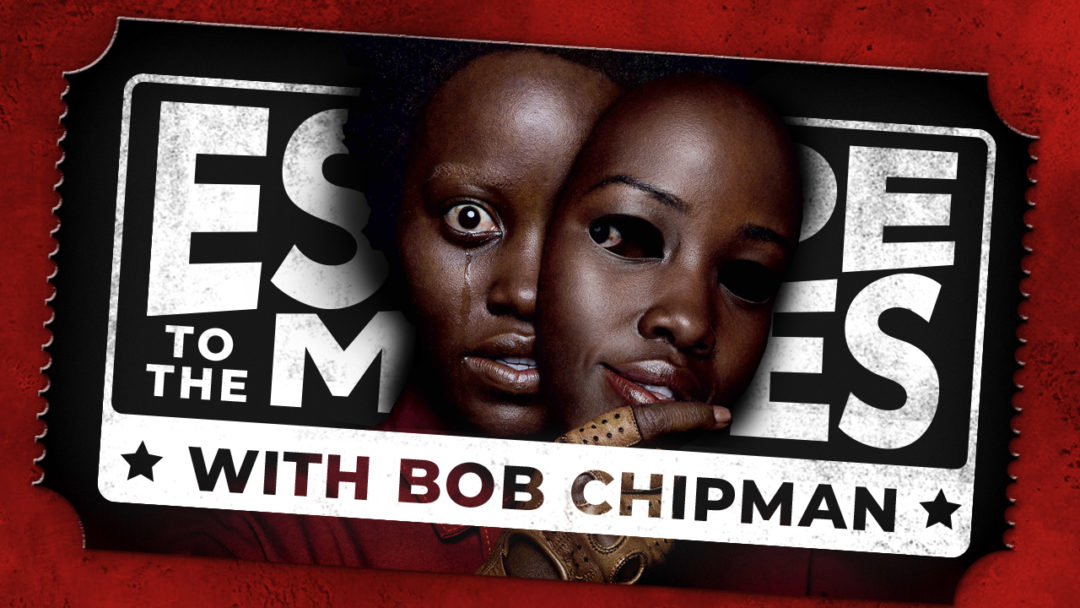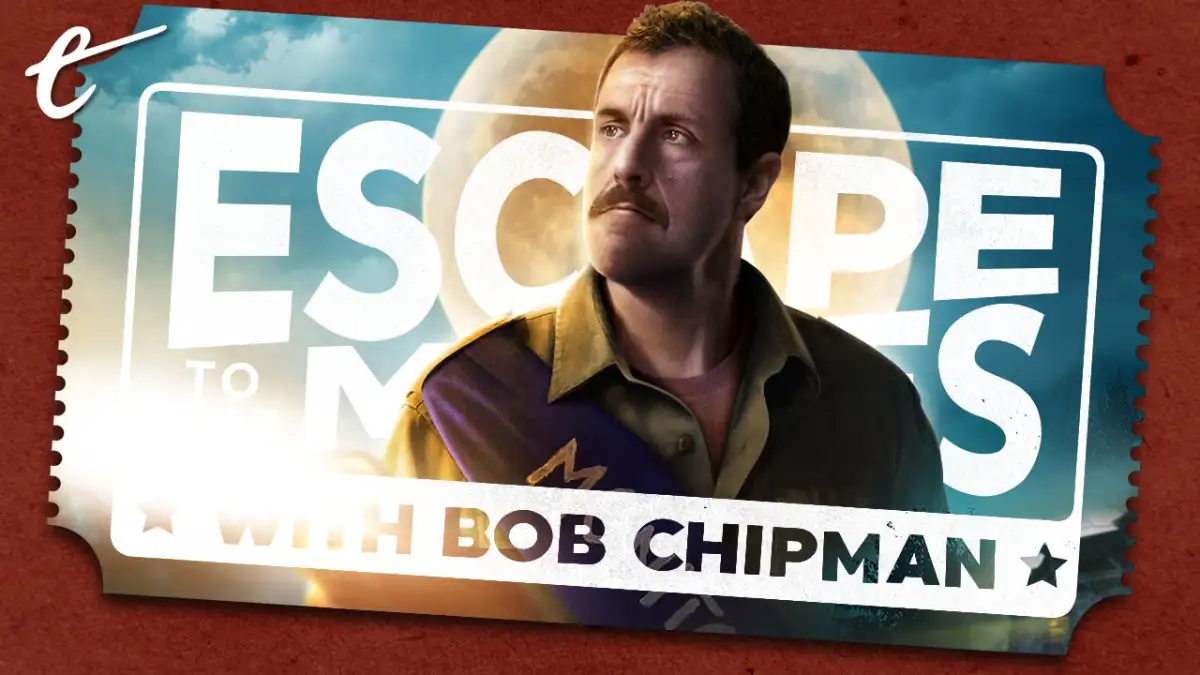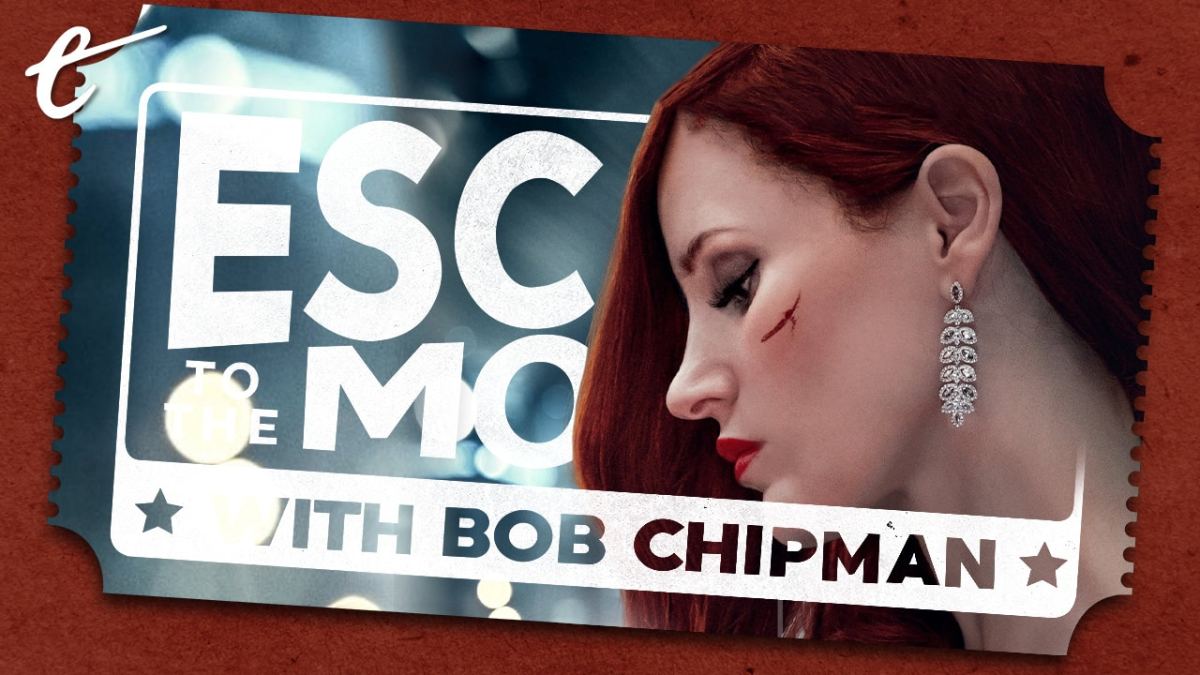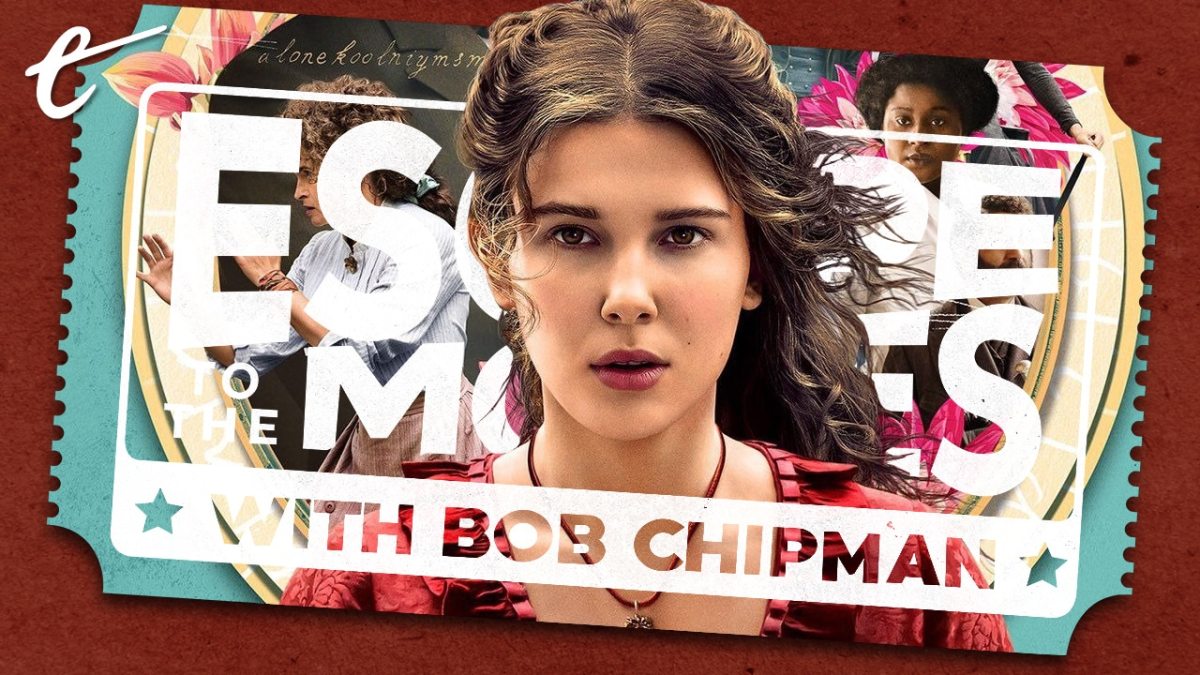To preface: My final rating is 9 out of 10. I thought Us was excellent. You should go see it and then you should see it again so you can process it all. It’s a marvelous ride of a chiller and about as different from Get Out as you could imagine a horror film can be. Us marks Jordan Peele not only as a master of his craft but also as a much stranger and more daring, risk taking, just plain weirder creative voice than I think many were initially expecting he’d reveal himself to be so soon. I give him all the credit in the world for seemingly accepting right upfront that everyone was bound to declare any follow up to his debut “not as good as Get Out” and then barreling ahead on something that feels guaranteed to push buttons every step of the way.
Now that I’ve said that, if you haven’t seen Us you probably should before you read the rest of this. There really isn’t a way to talk about the film in a “spoiler free” context (though I’ll try) without tripping over some detail you probably don’t want to know going in. Consider that a warning.
OK? OK.
When I say Peele’s voice is weirder than expected I acknowledge the turn to almost funny pop-surrealist absurdity in the third act of Get Out indicated that his imagination is capable of “going there.” But if Us differs from its predecessor in one key way over all it’s that it gets weird almost immediately and then never stops escalating right up to the end. It’s a far out scary story running on dream logic and nightmare imagery where the clearest explanation we ever get for what’s going on is in the form of a fairy tale recited by a madwoman. Its assemblage of plot beats, villains, iconography, jump scares and set piece sequences feel like something you could only create by compiling a list of terrible things half remembered from your worst bad dreams and trying to connect them into a single narrative. But these nightmares are all solid, human-scale and inflict very real, tactile violence. Something that looks and feels more odd than scary until it kills you seems to be Peele’s favorite visual gag.
The central conceit of Us is easily one of the most original, unsettling, and just plain freakish setups the genre has produced in years. An ordinary middle class family is being terrorized by a second family of sinister home invaders who are revealed to be their evil duplicates. To say more about them would be to give away some of the game. The bad guys — referred to only as “The Tethered” — aren’t so much mirror images or clones as they are grotesque homonculi parodies of each individual person. They don’t reflect their personalities, though they seem compelled but not necessarily bound to mimic their actions at times. Instead they embody an emptied, twisted variation of the person.
Us marks Jordan Peele not only as a master of his craft but also as a much stranger and more daring, risk taking, just plain weirder creative voice than I think many were initially expecting he’d reveal himself to be so soon.
Winston Duke from Black Panther is the dad and Academy Award-winner Lupita Nyong’o is the mom, with both actors and the kid performers asked to do double duty by playing their main role and their “evil” counterpart. They’re uniformly terrific, but it’s Nyong’o who steals the show handily, emerging as the central character with maybe the most personal connection to whatever is happening among the good guys, and as the only one of the Tethered capable of sort of speaking. It’s no exaggeration to say she’s created one of the all time great horror movie villain performances here. It could be argued Nyong’o is giving one of, if not the, best female horror lead performances ever, basically having to play both Michael Myers and Laurie Strode at the same time. If she’s not up for a Best Actress nomination a year from now, something has gone terribly wrong.
That said, I have a feeling that even if my overall impression of Us being terrific remains consistent I’ll end up not loving this review. This will be one of the most talked about and hotly debated releases of the year and we’re all going to be compelled to revisit it. I’m positive there are aspects I’ve missed and important things that should get highlighted that I’m not focusing on for fear I’d be giving too much away. What’s crystal clear is how fearsomely good Peele’s filmmaking chops are when fully unleashed. Us isn’t a massively scaled film, but he directs it to look like one, and his visual eye and sense of scope make it feel like one. It’s so gorgeous that you occasionally forget that it’s supposed to be a horror movie at all. When the scary stuff comes charging back in, it’s a real shock to the system.

There’s blood and violence, though not to an absurd degree. The idea of the carnage and the general sense of what’s going on are so incredibly creepy you really do feel like you’re trapped at the mercy of a deeply unwell but scarily competent mind. Even if I didn’t like the film as much as I did, I’d be impressed with the kind of confidence it takes to intentionally send an audience home in the sort of mood Us is destined to. Its rhythms and major moments are clearly designed to play to a big crowd, but its subtextual depths, reflective interludes, and lasting impacts traffic heavily in trauma and deep foreboding. It burns into your mind the sense of unease and decoupling from safe assumptions that afflict its protagonists.
Do I have criticisms? Some, but it would be more accurate to say I have thoughts I’d like to double check my reaction to. There’s an event in the third act that throws much of the rest of the story into a different context that, when it first happened, I intensely disliked because it felt gratuitous and unnecessary. Then I realized that not only was it necessary, it was the only way much of the rest of the film made sense and was perhaps less abstract and much more of a challenge than I’d thought.
Get Out was a fairly straightforward thriller with one big sci-fi/horror conceit built around a single specific theme, but Us is telling a much bigger story in terms of what’s going on. While I prefer Peele’s decision to only explain enough of the actual mechanics behind the Tethereds’ existence to not have to slow down and dilute the tension of the finale, I’m sure a lot of people will be annoyed by not getting a full origin story. Us is also casting a much wider net in multiple directions. It might actually be just a little too big in the way that high concept ‘70s horror that inspired Peele often was, even at its best.
But if the narrative falters at all, it’s at the wide view level which is ultimately secondary to the immediacy of the family survival story and the personal narrative happening between the two Nyong’os, which are both played out to near perfection. It’s also got a warmly real feeling first act of setup, a dynamite opening, two nerve-shredding home invasion sequences comprising the bulk of the film’s middle, and a final confrontation scene so uniquely bizarre that the idea of audiences overlooking it to fret about not getting enough explanation is kind of depressing.
All told, Us is a triumph to watch play out, a feast of terrific horror acting, and a thrillingly unsettling, creepy, hard to shake film to experience. I recommend it without hesitation.





